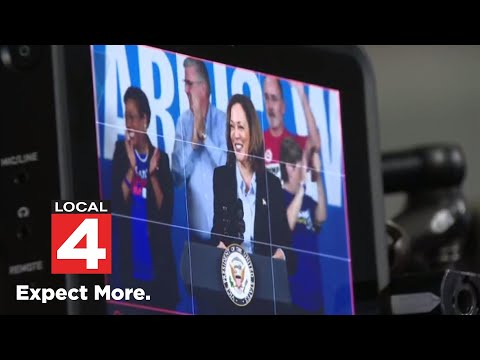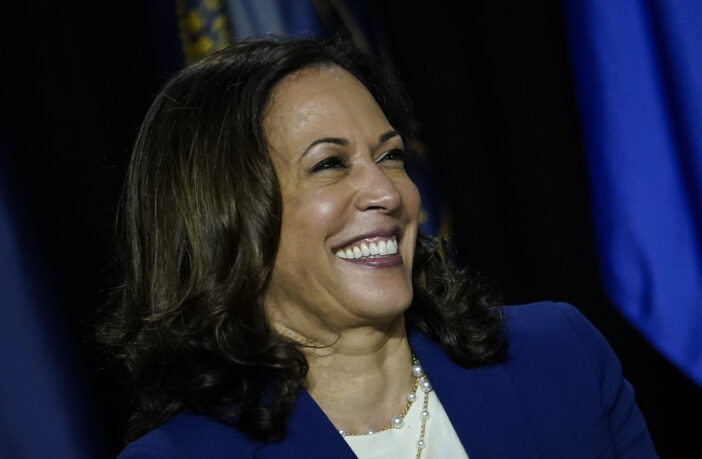It’s Labor Day, and Kamala Harris, the Vice President of the United States, is standing in front of a union audience in Detroit, delivering a speech that feels natural, comfortable, and genuine. To Black Americans, particularly Black women, there’s nothing unusual about how she sounds. She’s using familiar rhythms, expressions, and intonations — in short, she’s just being herself.
But the moment is seized by white conservatives, eager to claim that Harris is putting on an accent, as though this act of speaking differently in front of different groups somehow makes her dishonest or less authentic.
“Since when does the Vice President have what sounds like a Southern accent?” Fox News correspondent Peter Doocy asked later during a White House briefing. What Doocy and others fail to grasp is that Kamala Harris, in those moments, wasn’t using a Southern accent. She was code-switching. It’s something Black folks do every day. We speak one way in professional settings, another way with family and friends, and yet another when we feel particularly at home with our people.
What Harris was doing wasn’t some kind of “act” — it was an expression of a deeply ingrained skill that allows Black people to survive and thrive in a society where we straddle two worlds.
What is Code-Switching, really?
Code-switching, or the ability to switch between different languages, dialects, and mannerisms depending on the audience, is a survival tactic. For Black Americans, it’s a tool we’ve honed for centuries, navigating spaces where being fully ourselves might invite scrutiny or rejection. Harris, like many Black women, has mastered this skill. And it’s not about being fake — it’s about being adaptable. It’s about speaking in a way that allows everyone in the room to understand you, and sometimes, that means switching up how you sound.
Let’s break it down for those who may not get it. My friend, New York Times Bestselling author Victoria Christopher Murray points out that this concept of “double consciousness” was first explored by W.E.B. Du Bois in his 1903 book, The Souls of Black Folk.
Du Bois explained that Black Americans had to learn to navigate two identities simultaneously — being Black and being American — because those two experiences were often at odds in this country. White Americans could just be American, but Black people had to juggle both parts of themselves. We didn’t have the luxury of existing as just one thing.
Du Bois described it as a “two-ness” of soul. Code-switching, in many ways, is an extension of that double consciousness. It’s how we adjust in environments where we might not be fully understood or accepted. It’s a way to blend in and avoid the pitfalls of being labeled “too Black” or “not professional enough” in white-dominated spaces.
Kamala is doing what Black women do every day

Kamala Harris isn’t new to this. When she’s with Black audiences, we recognize her authenticity. She speaks in a way that resonates with us. It’s not a performance. It’s how she talks when she’s at ease, when she feels she’s among family.
And when she’s speaking to broader, predominantly white audiences, we recognize the polished, professional Kamala too — the Vice President who knows how to navigate elite political spaces.
There’s an art to this. Black women often exist in spaces where we have to balance who we are with how we’re perceived. I can go from hobnobbing with the elite to hanging in the hood. My conversations can range from, “That, sir, is fulgurous” to “Girl, it’s all good.” Neither conversation is fake — they are both me, adapting to my environment.
For Black women in America, this is second nature. We know how to switch it up when necessary, without losing sight of who we are. We are complex, multifaceted people living in a society that doesn’t always appreciate our range. The ability to switch between different worlds, and the voices those worlds require, is a skill that allows us to survive in a world not always constructed with us in mind.
The performance of public speech
Let’s not forget that public speaking, in and of itself, is a performance. We practice our speeches, choose our words carefully, and adjust our tone to suit the audience. That’s not being inauthentic — it’s public speaking 101. Every politician, every leader, does it. But when Kamala Harris does it, suddenly it’s “a problem.”
What’s really happening here is an attempt to hold Black women to impossible standards. Damned if we do, damned if we don’t. If we don’t adapt to our audience, we’re criticized for being “too Black,” “too aggressive,” or “too unpolished.” If we do, we’re accused of being fake, of putting on a performance.
This type of criticism speaks to a broader issue of policing Blackness. It suggests that there’s only one acceptable way to be Black, and anything outside of that narrow definition is considered “inauthentic.” It’s insulting. Black culture is not a monolith, and Black people, including Kamala Harris, have the right to express themselves in all of our fullness and complexity.
Code-switching is survival, not deception
Kamala, a Black and Indian woman who was raised in California and educated at Howard University, has a wealth of experiences that shape who she is and how she communicates. She’s a lawyer, a prosecutor, and a politician. She’s a member of Alpha Kappa Alpha Sorority, Inc. She’s been in rooms where she was one of few women and even fewer people of color. All of these experiences inform how she moves through the world and how she speaks to different groups of people.
For centuries, Black people have had to learn how to exist in environments that weren’t built for us. We had to find ways to communicate that would make us heard, understood, and respected. What white conservatives fail to understand is that code-switching isn’t about deception. It’s about survival. It’s about finding ways to navigate a society that often views our very existence with suspicion.
So, when Kamala speaks in Detroit, she’s not “putting on” a Black accent. She’s doing what we’ve all done — being herself, adjusting to the moment, and connecting with the people who understand her best. If that’s a problem for some, it says more about their limited view of Blackness than it does about Kamala Harris.
And to that, I say: get used to it. We’re not changing who we are. We’re just showing you how vast, brilliant, and adaptable we can be.



